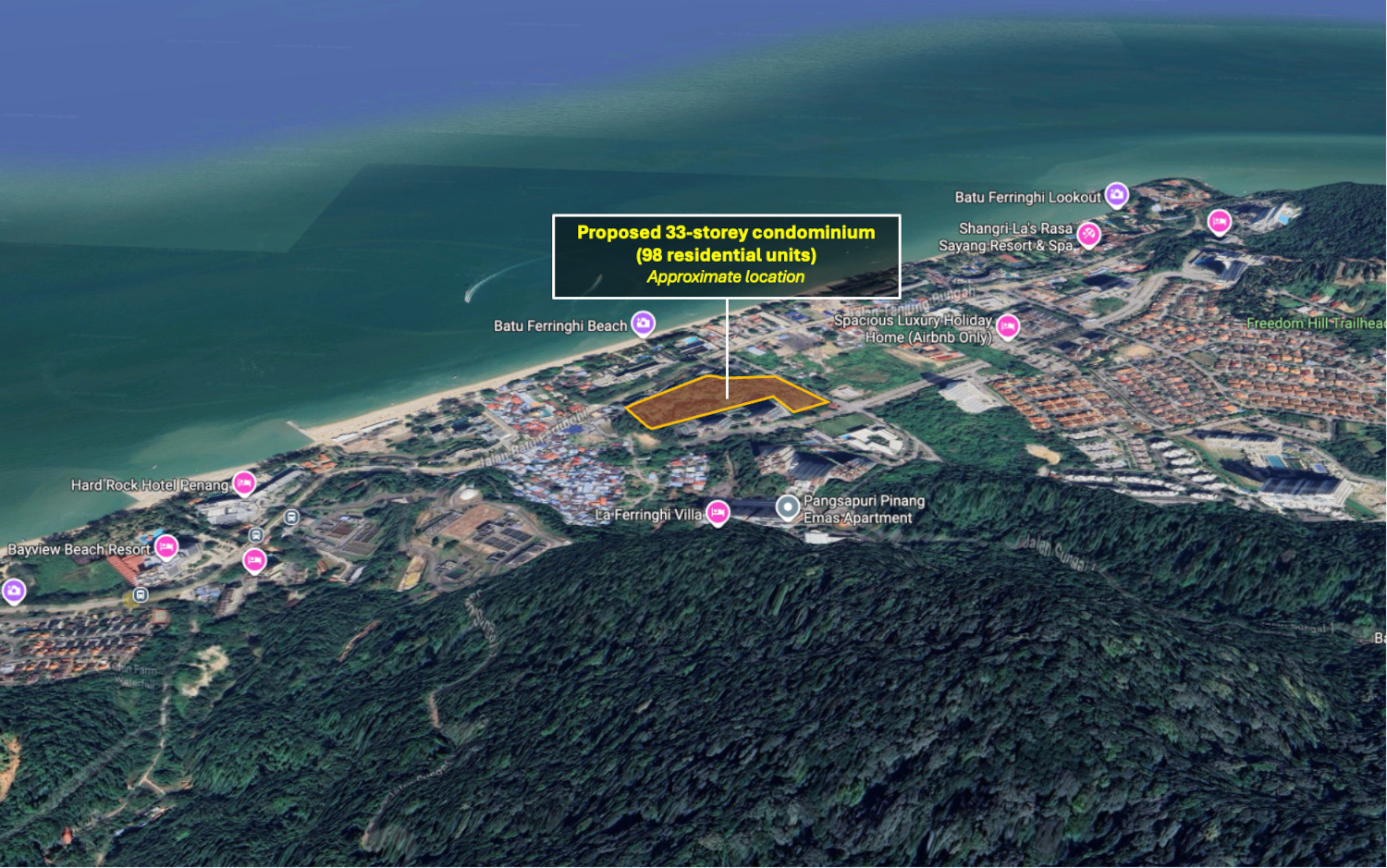
The Northern Region property market recorded a moderate performance in 2025, with mixed signals across the four states of Penang, Perak, Kedah and Perlis. According to the Northern Region Property Market Report 2025 by the Valuation and Property Services Department (JPPH), the region registered 104,689 transactions worth RM37.36 billion.
While overall transaction volume declined by 2.8% year-on-year, total value increased by 2.3%, indicating continued resilience in pricing and high-value transactions.
Penang: Highest Value Contributor in the Region
Despite recording a 3.9% drop in transaction volume to 23,474 transactions in 2025, Penang remained the region’s top contributor in terms of transaction value. The state accounted for 40.5% of the Northern Region’s total value, amounting to RM15.13 billion.
This reinforces Penang’s position as the most valuable property market in the north, supported by its strong industrial base, limited land supply and sustained investor interest.
Residential properties continued to dominate the market, forming 57.2% of total regional transactions. However, Penang’s residential sub-sector saw a 4.9% decline in volume and a 7% drop in value year-on-year. Nevertheless, the state maintained the highest average house price in the region at RM497,857 in 2025, with its All House Price Index rising by 2.7%.
New Launches and Unsold Situation
The primary market in Penang softened during the review period. New residential launches declined by 27% compared to 2024, contributing to an overall 8.6% drop across the Northern Region. Condominiums and apartments remained the main contributors to new supply in Penang, reflecting its urban and high-density development pattern.
On the overhang front, there was a mixed outcome. Unsold completed residential units in Penang improved slightly, with both volume and value declining. However, unsold units under construction increased by 1.3%, while serviced apartment and SOHO overhang rose significantly. Unsold completed serviced apartments climbed to 1,263 units worth RM771.56 million, compared to 549 units the previous year.
This suggests continued caution in the high-rise and investor-driven segments.
Industrial and Commercial Highlights
Penang’s industrial segment remained active, reflected by multiple high-value factory and warehouse transactions recorded during the year, particularly within established industrial zones such as Bayan Lepas, Valdor and Seberang Perai. These transactions underline sustained demand linked to the state’s electrical and electronics ecosystem.
In the commercial sector, transaction volume declined across the region, with Penang’s commercial transaction value dropping by 24.9% year-on-year. Nevertheless, shop properties remained stable in pricing, with landed shops in prime areas transacting as high as RM5.1 million.
Retail occupancy in Penang moderated to 70.9%, slightly lower than 2024, while the purpose-built office segment saw occupancy ease to 81.4%. Despite this, new office completions such as Ideal MSC Tower and the Ministry of Human Resources building in George Town added fresh supply to the market.
Outlook
While 2025 reflected a cooling phase in transaction activity, Penang continues to lead the Northern Region in terms of value and pricing strength. The moderation in new launches and rising high-rise overhang indicate a more selective market environment, particularly in investor-oriented segments.
That said, strong industrial fundamentals, continued infrastructure expansion and sustained house price growth suggest that Penang’s property market remains structurally resilient, albeit moving into a more measured and demand-driven cycle.





